
Find A Professional
More Items From Ergsy search
-

Does Thames Water enforce a hosepipe ban more than other water authorities?
Relevance: 100%
-
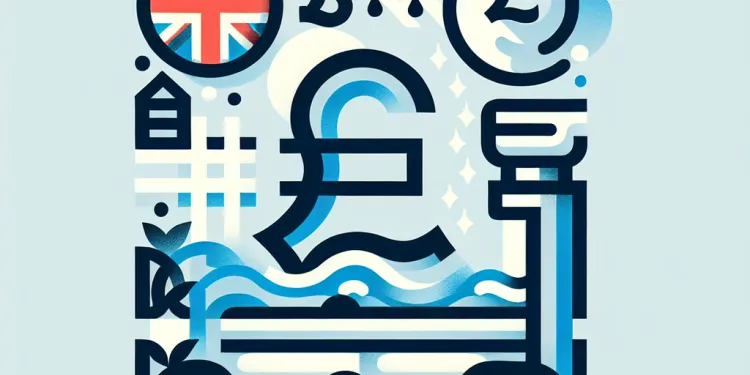
Does Thames Water impose hosepipe bans more frequently than other water authorities?
Relevance: 97%
-
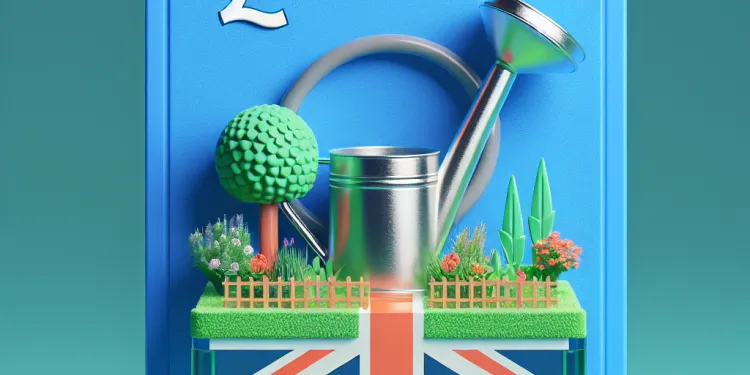
Can I use a watering can during a hosepipe ban?
Relevance: 84%
-
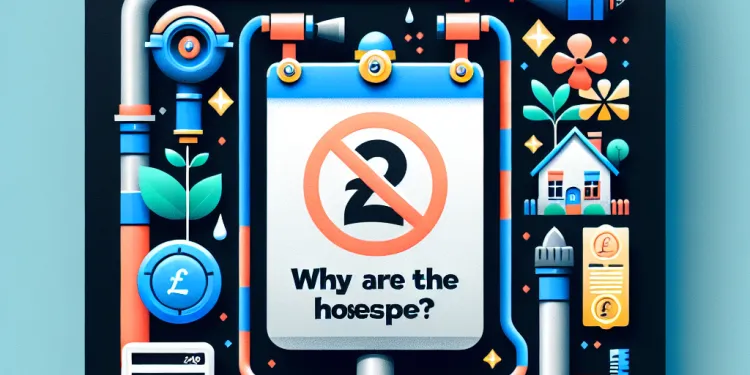
Why are hosepipe bans imposed?
Relevance: 79%
-
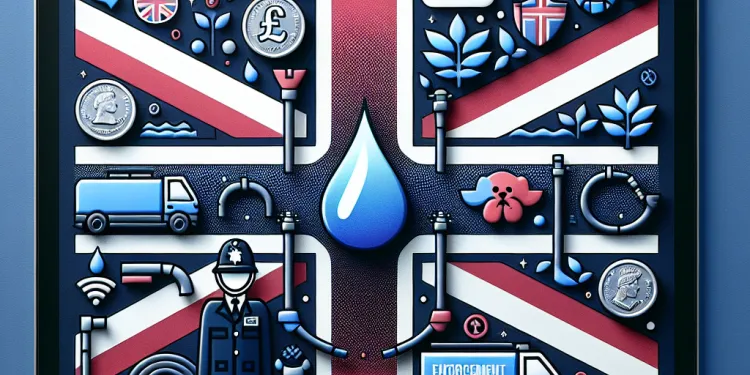
Who enforces hosepipe bans?
Relevance: 79%
-
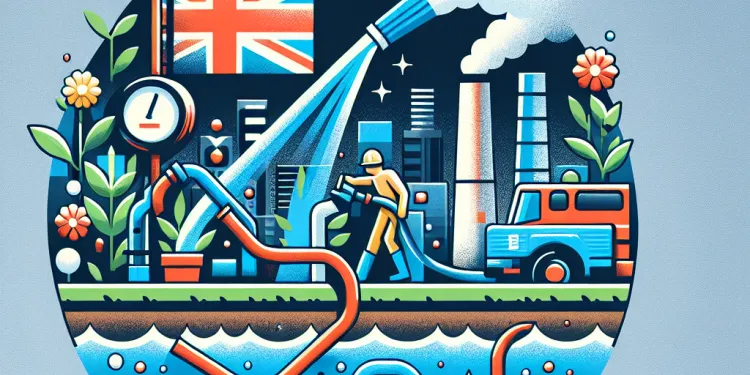
Under what conditions does Thames Water typically impose a hosepipe ban?
Relevance: 77%
-

Can water companies enter my property to enforce a hosepipe ban?
Relevance: 75%
-

Does Thames Water notify customers before a hosepipe ban is enforced?
Relevance: 75%
-
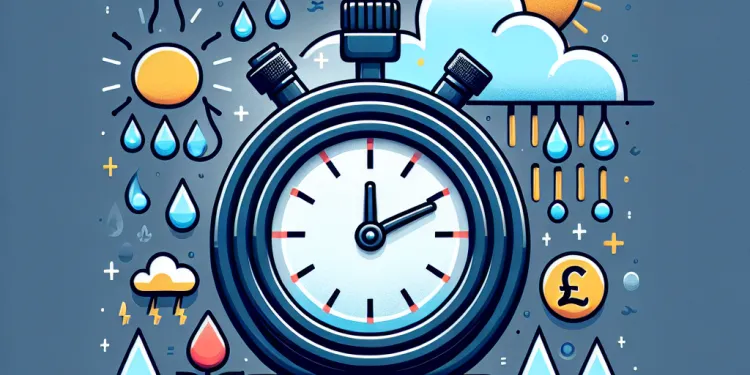
How long do hosepipe bans last?
Relevance: 70%
-

Is a hosepipe ban legally enforceable?
Relevance: 69%
-
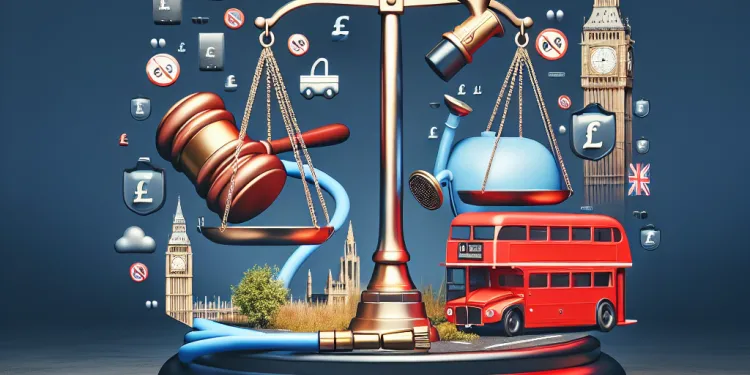
What is the penalty for violating a hosepipe ban from Thames Water?
Relevance: 69%
-

Is a hosepipe ban legally enforceable?
Relevance: 66%
-
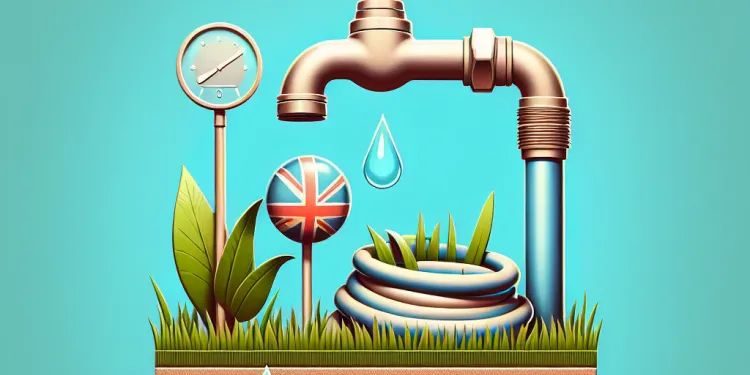
What is a hosepipe ban?
Relevance: 66%
-
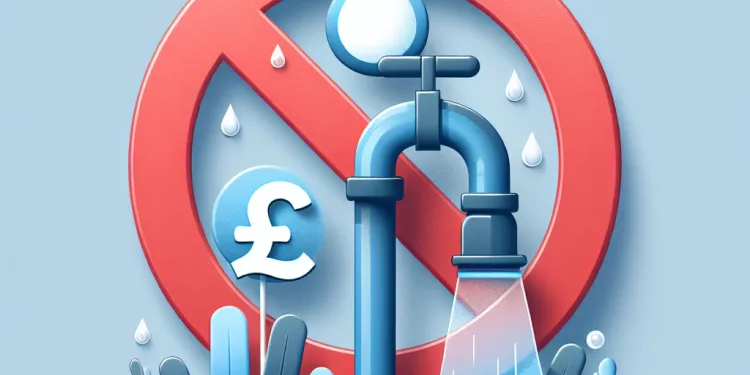
What happens if a hosepipe ban is ignored?
Relevance: 64%
-
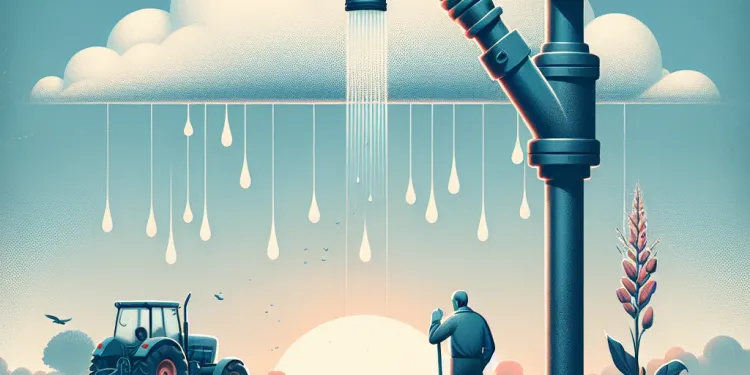
How do hosepipe bans affect farmers?
Relevance: 61%
-

Do hosepipe bans apply to public parks and gardens?
Relevance: 58%
-
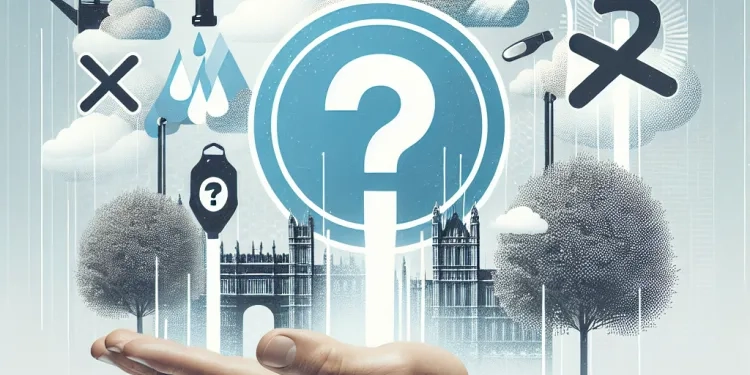
Is using a pressure washer allowed during a hosepipe ban?
Relevance: 58%
-

How can I check if there is a hosepipe ban in my area?
Relevance: 58%
-

Are there any exceptions to a hosepipe ban?
Relevance: 57%
-
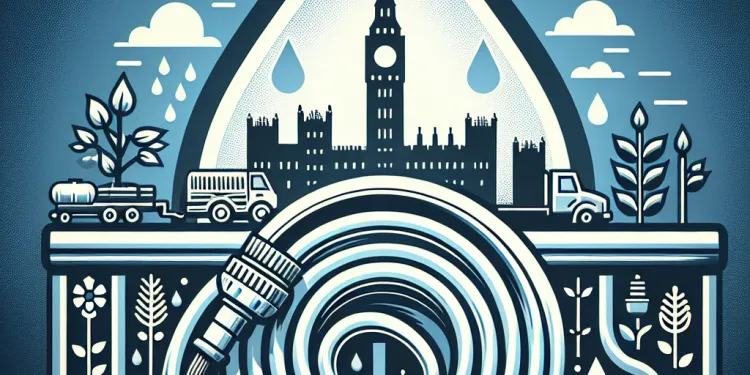
How are hosepipe ban restrictions communicated to the public?
Relevance: 57%
-
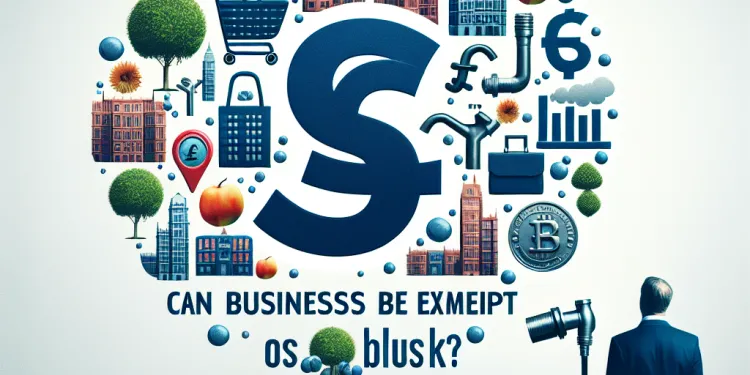
Can businesses be exempt from hosepipe bans?
Relevance: 56%
-
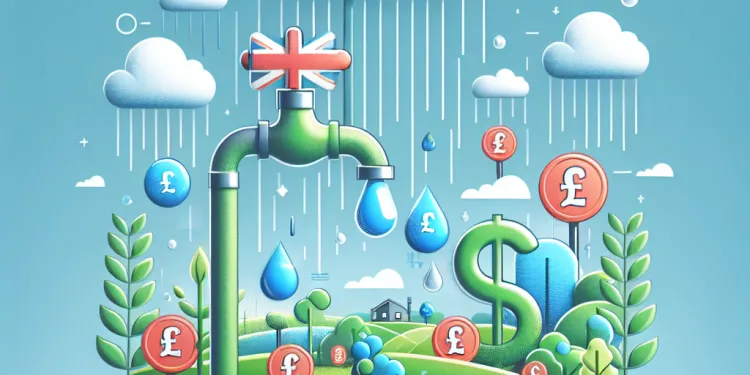
What causes water loss in the UK?
Relevance: 53%
-
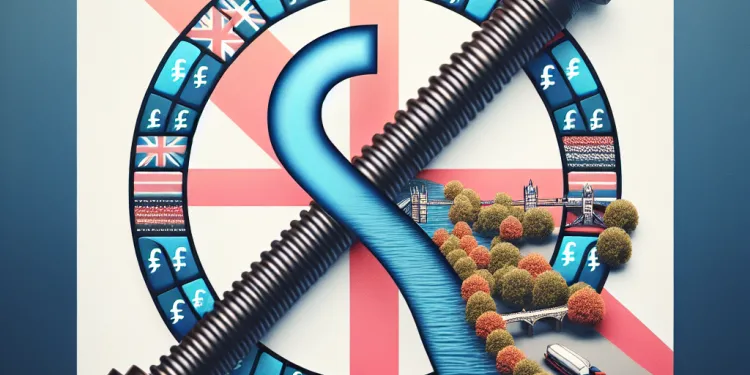
How often does Thames Water enforce hosepipe bans?
Relevance: 52%
-

Are there initiatives to improve water efficiency in infrastructure?
Relevance: 49%
-

What is the role of consumers in reducing water loss?
Relevance: 49%
-
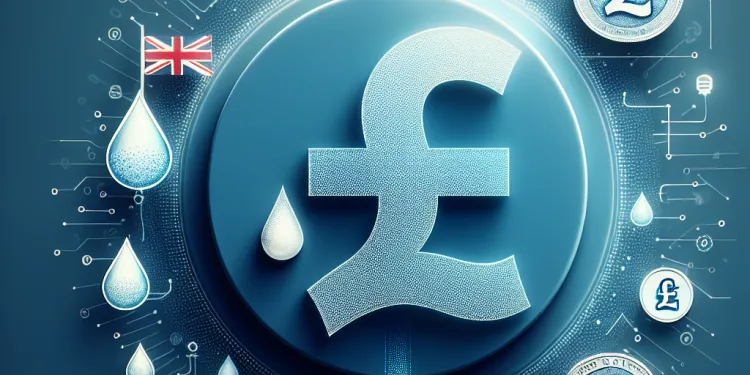
What are the financial implications of water loss for the UK?
Relevance: 47%
-
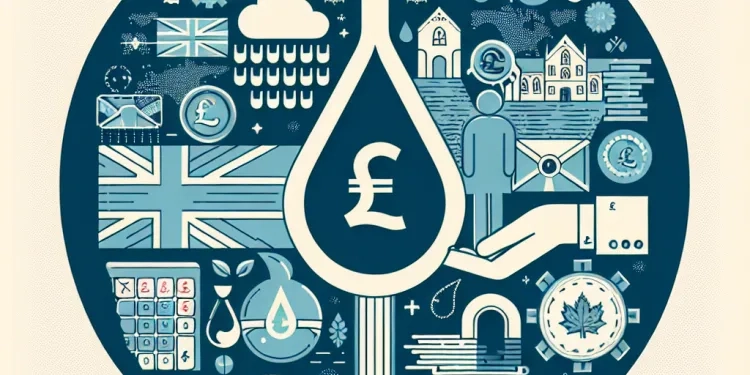
Are there any government initiatives to tackle water loss in the UK?
Relevance: 46%
-

Who regulates the performance and compliance of UK water companies?
Relevance: 46%
-

How significant is the water loss problem in the UK?
Relevance: 45%
-

What impact does water loss have on the environment in the UK?
Relevance: 45%
-
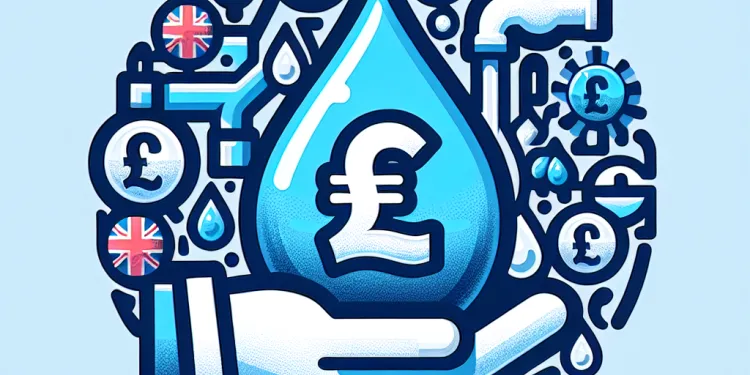
Can individual actions significantly impact overall water loss?
Relevance: 45%
-

What is the role of a water regulator in my claim?
Relevance: 43%
-
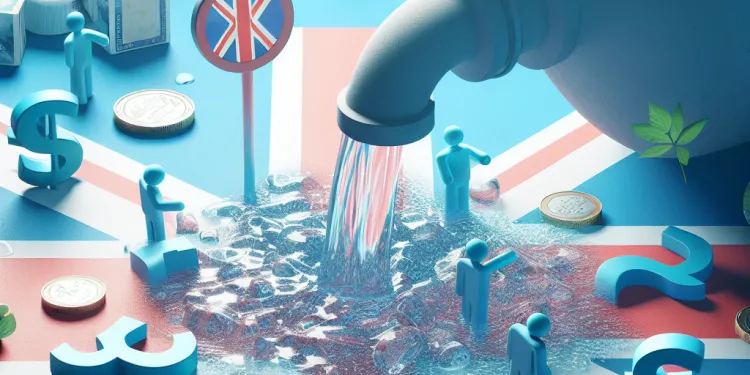
How much water is lost in the UK through poor infrastructure?
Relevance: 41%
-

Do online banks have lower fees than traditional banks?
Relevance: 41%
-

Are water companies responsible for maintaining water infrastructure in the UK?
Relevance: 41%
-

Can hosepipes be used for irrigation during a ban?
Relevance: 40%
-

Do all banks have the same fee structures?
Relevance: 37%
-

How are new technologies helping to reduce water loss in the UK?
Relevance: 36%
-

What measures are being taken to address water loss in the UK?
Relevance: 36%
-
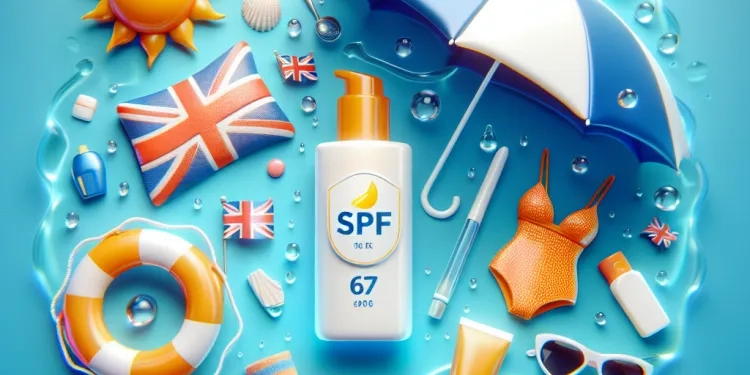
Do I need a different SPF for water-related activities?
Relevance: 35%
Introduction
Thames Water is one of the largest water and wastewater services providers in the UK, serving customers in London and the Thames Valley region. Given the variability in weather patterns and the increasing pressures on water resources, the enforcement of hosepipe bans is a key strategy for managing water demand during periods of scarcity. This article explores whether Thames Water imposes hosepipe bans more frequently than other UK water authorities and what factors influence these decisions.
Understanding Hosepipe Bans
A hosepipe ban, also known as a temporary use ban, is a water-saving measure enforced by water companies during times of drought or significant water shortage. These bans restrict the use of hosepipes for activities such as watering gardens, filling paddling pools, and washing cars. The objective is to reduce water consumption and ensure a sustainable supply during periods of low rainfall.
Thames Water's Approach
Thames Water, due to its vast service area, plays a significant role in water management in the UK. The region it serves is densely populated, which increases the demand for water. Historically, Thames Water has implemented hosepipe bans during dry spells, such as the notable ban in 2012. This was due to exceptional dry weather conditions and the need to preserve water supplies. Another ban was announced in 2022 following one of the driest years in decades.
Comparison with Other Authorities
Water management is complex and varies across regions. Some areas in the UK may face more frequent water shortages due to lower natural water availability or higher consumption rates. Water companies like South East Water, Southern Water, and others also enforce hosepipe bans based on their regional circumstances. However, due to factors like population density, specific weather patterns, and infrastructure capacity, Thames Water may appear to enforce bans more often in certain periods.
Factors Influencing Hosepipe Bans
Several factors influence the decision to impose a hosepipe ban. These include weather conditions, reservoir levels, and long-term climate trends. Population growth and urban development also play a role, as they increase water demand and strain existing resources. Moreover, leakage rates in water distribution systems can affect supply adequacy, prompting bans to conserve resources.
Conclusion
While Thames Water has historically enforced hosepipe bans during periods of drought, this is broadly consistent with actions taken by other water companies in the UK during similar conditions. The frequency and necessity of such bans are driven by regional demands and climatic conditions, meaning no single water authority enforces them disproportionately more than others. As climate variability continues to pose challenges, all water companies, including Thames Water, will likely employ hosepipe bans strategically to manage water sustainably.
Introduction
Thames Water is one of the biggest water companies in the UK. It gives water to people in London and the Thames Valley. Sometimes, there is not enough rain, and water is hard to find. When this happens, Thames Water might say people cannot use hosepipes. This helps save water. This article talks about how often Thames Water does this compared to other water companies in the UK.
Understanding Hosepipe Bans
A hosepipe ban means you cannot use a hose to water your garden, fill up paddling pools, or wash cars. This happens when there is not enough water because of no rain. The ban helps save water so everyone can have enough.
Thames Water's Approach
Thames Water looks after a big area with many people, so it has to manage a lot of water. In 2012 and in 2022, it stopped people from using hosepipes because there had been very little rain. They did this to make sure there was enough water for everyone.
Comparison with Other Authorities
Different places in the UK have different water needs. Some areas do not get as much rain, or they use more water, so they might have hosepipe bans too. Other water companies like South East Water also have bans when needed. Thames Water might seem to have bans more often because more people live in the area it serves.
Factors Influencing Hosepipe Bans
Many things can cause a hosepipe ban. These include the weather, how much water is in reservoirs, and how many people are using water. If water pipes leak a lot, there might be a need for a ban to save water.
Conclusion
Thames Water uses hosepipe bans when there is not enough rain, just like other water companies. These bans are important to make sure everyone has water when it is dry. As the weather changes, Thames Water, like other companies, will keep using bans to help save water.
Frequently Asked Questions
What is a hosepipe ban?
A hosepipe ban is a temporary restriction on the use of hosepipes to water gardens, wash cars, and other activities that use significant amounts of water, typically implemented during times of drought.
Why do water authorities enforce hosepipe bans?
Hosepipe bans are enforced to conserve water during periods of drought or unusually dry weather when water supplies may be lower than normal.
How often does Thames Water enforce hosepipe bans?
The frequency of hosepipe bans by Thames Water can vary based on weather conditions and water supply levels. It’s not a regular occurrence and is mainly prompted by prolonged dry periods.
Does Thames Water impose hosepipe bans more frequently than other water authorities?
It depends on the specific region and climate conditions. Thames Water may impose bans when it experiences more severe conditions compared to other areas.
Are hosepipe bans legally binding?
Yes, violating a hosepipe ban can lead to fines as it is legally enforceable under water resource management regulations.
Can I use a watering can during a hosepipe ban?
Yes, watering cans can typically be used as an alternative to hosepipes during a hosepipe ban.
Does Thames Water notify customers before a hosepipe ban is enforced?
Yes, Thames Water will notify customers through their website, media announcements, and direct communications before enforcing a hosepipe ban.
What are some exemptions to the hosepipe ban?
Exemptions may include using gray water or rainwater collected in tanks, and specific needs like for disabled individuals who require hosepipes for certain tasks.
What is the penalty for violating a hosepipe ban from Thames Water?
Violating a hosepipe ban could lead to fines of up to £1,000.
Under what conditions does Thames Water typically impose a hosepipe ban?
Thames Water may impose a ban during extended periods of drought or when there is a significant reduction in water supply levels.
How can residents conserve water during a hosepipe ban?
Residents can conserve water by limiting water use, fixing leaks, using water-efficient appliances, and collecting rainwater.
How do I find out if a hosepipe ban is in effect in my area?
Check the Thames Water website, listen to local news updates, or look for communications from Thames Water for information about hosepipe bans.
Can businesses be affected by a hosepipe ban?
Yes, businesses may also be required to reduce water usage, although there might be specific guidelines and exemptions for business operations.
Does everyone have to comply with the hosepipe ban?
Yes, all domestic and non-exempted commercial water users in the affected area must comply with the ban.
Is there a difference between a hosepipe ban and other water restrictions?
A hosepipe ban is a specific type of water restriction targeting the use of hosepipes, while other restrictions might also cover broader usage limitations.
Does climate change affect the frequency of hosepipe bans?
With changing climate patterns, prolonged dry spells and drought frequencies may increase, possibly leading to more frequent hosepipe bans.
How long does a hosepipe ban typically last?
The duration of a hosepipe ban varies depending on weather patterns and water supply levels, ranging from a few weeks to several months.
Are watering restrictions the same across all water authorities?
No, restrictions can vary based on local conditions and water authority policies.
Can I wash my car with a bucket during a hosepipe ban?
Yes, using buckets of water is generally permitted for activities like washing cars during a hosepipe ban.
How can I stay informed about water usage policies like hosepipe bans?
Stay informed by regularly checking water authority websites, subscribing to notifications, and following news updates.
What is a hosepipe ban?
A hosepipe ban means you cannot use your hosepipe. This usually happens when there is not enough water. In this case, we need to save water.
You can still use buckets or watering cans. They help you use less water.
Try using a timer when you use water. This way, you don't use too much.
A hosepipe ban means you cannot use a hosepipe for a little while. This helps save water when there is not much rain. You cannot use a hosepipe to water the garden or wash cars.
Why do water companies stop people using hosepipes?
Water companies sometimes say "no" to using hosepipes. This is to save water.
In hot weather, there is less rain and water. People need to use less water so everyone has enough.
Tips to save water:
- Take short showers. This uses less water than baths.
- Turn off the tap when brushing your teeth.
- Use a watering can to water plants.
Hosepipe bans happen when there is not enough water because of dry weather. People use less water so we can save it.
How many times does Thames Water stop people from using hoses?
Sometimes, Thames Water tells people they can't use hosepipes. This usually happens when there hasn't been rain for a long time and there isn't enough water. It doesn't happen all the time, just when it's very dry.
Does Thames Water stop people using hosepipes more often than other water companies?
People sometimes cannot use hosepipes to water their gardens. This is called a "hosepipe ban."
We want to know if Thames Water stops people from using hosepipes more often than other water companies.
A picture or chart can help you understand which water company has the most bans.
Use a dictionary to look up words if you need help.
In some places, water rules might be different. Thames Water might make rules because the weather is different or the area needs help.
Do you have to follow hosepipe bans?
If you use a hose when there is a ban, you can get a fine. This is because it is against the law when we need to save water.
Can I use a watering can when hoses are banned?
When you cannot use a hosepipe, you might still use a watering can. A watering can is a good way to water your garden. It saves water. You fill it with water and pour it over your plants. It is a simple tool. If you need help, ask a friend or use pictures to understand better.
Yes, you can use watering cans instead of hosepipes when you are not allowed to use hosepipes.
Will Thames Water tell you before you cannot use your hosepipe?
Yes, Thames Water will let people know before a hosepipe ban starts. They might send you a letter or an email. You can also check their website or call their customer service for more information.
Yes, Thames Water will let people know before they stop you from using a hose. They will tell you on their website, on the news, and by sending messages to you.
Who can still use a hosepipe during the ban?
Sometimes, there are special rules. You can use gray water or rainwater that you collect in tanks. Also, if someone has a disability and needs a hosepipe for certain jobs, that might be allowed too.
What happens if you break a water hose rule from Thames Water?
If you break the rules about using a hosepipe, you might have to pay up to £1,000.
When does Thames Water usually say you can't use a hosepipe?
Thames Water might stop people from using a lot of water if it does not rain for a long time or if there is not enough water.
How can people save water when they can't use a hose?
Here are some easy ways to save water:
- Use a bucket: Fill a bucket instead of using a hose to wash your car or water plants.
- Take short showers: Try to finish your shower in 4 minutes or less.
- Turn off taps: Make sure the tap is off while brushing your teeth.
- Fix leaks: Ask for help to fix dripping taps at home.
- Use rainwater: Put a barrel outside to catch rainwater for your garden.
You can also download apps that help remind you to save water every day!
People can save water by using less water, fixing leaks, using machines that save water, and catching rainwater.
How can I check if I cannot use my garden hose?
You can see if there is a hosepipe ban where you live by:
- Going online to your water company’s website.
- Looking for news or alerts in your local newspaper.
- Listening to the radio or watching TV news.
- Asking a neighbor or friend.
If reading is hard, you can:
- Use a voice assistant to help you search.
- Ask someone you trust to read for you.
Look at the Thames Water website. Listen to local news on TV or radio. Check for messages from Thames Water. This will help you know if there is a hosepipe ban.
Can a hosepipe ban impact businesses?
Yes, businesses might have to use less water. There could be special rules and some businesses might not have to follow them.
Do all people need to follow the hosepipe ban?
Yes, everyone at home and businesses using water in the area must follow the rules of the ban.
Is a hosepipe ban the same as other water rules?
A hosepipe ban means you can't use a hosepipe to water your garden or wash your car.
Other water rules can be different. They might say you can't fill your swimming pool or wash your patio.
If you're not sure about the rules, you can:
- Check on the water company's website.
- Ask someone for help to understand the rules.
There are apps and websites that can help you read and understand better.
A hosepipe ban means you can't use a hosepipe to water things. There are other rules that might say you can't use water in other ways too.
Does Climate Change Make Us Use Hosepipes Less Often?
Climate change means the weather is changing. It might be hotter or drier. When it's very dry, we sometimes can't use hosepipes to water plants and gardens.
This is called a "hosepipe ban." Climate change can make these bans happen more. We need to save water.
Here are some ways to help:
- Use a watering can instead of a hose
- Collect rainwater to water your plants
- Water your garden in the morning or evening when it's cooler
The weather is changing. There might be more times with little or no rain. This means we might not have enough water. So, we might be told not to use hosepipes as often.
How long does a hosepipe ban usually last?
A hosepipe ban can last for different times. It might be for a few weeks or a few months. This depends on the weather and how much water is available.
Do all water companies have the same rules for watering?
No, the rules about water can be different in each place. It depends on the weather and what the water bosses say.
Can I clean my car with a bucket when I can't use a hose?
Sometimes, you are not allowed to use a hose to clean your car. This is called a hose ban.
You can use a bucket of water and a sponge instead. Make sure to use water carefully.
Ask an adult for help if you need it.
Yes, you can use buckets of water to wash your car when there is a hosepipe ban.
How can I know about rules for using water, like when you can't use a hose?
Here are some ways to find out about water rules:
- News: Watch TV news or listen to the radio. They share stories about water rules.
- Internet: Visit websites or use phone apps to look up water news.
- Local Council: Check your local council's website or call them for information.
- Water Company: Your water company might send letters or emails about water rules.
If reading is hard, ask someone to help you or use tools that read text out loud.
Keep up to date by looking at water company websites often. You can sign up to get messages and watch the news.
Useful Links
- Ergsy carfully checks the information in the videos we provide here.
- Videos shown by Youtube after a video has completed, have NOT been reviewed by ERGSY.
- To view, click the arrow in centre of video.
- Most of the videos you find here will have subtitles and/or closed captions available.
- You may need to turn these on, and choose your preferred language.
- Go to the video you'd like to watch.
- If closed captions (CC) are available, settings will be visible on the bottom right of the video player.
- To turn on Captions, click settings .
- To turn off Captions, click settings again.
More Items From Ergsy search
-

Does Thames Water enforce a hosepipe ban more than other water authorities?
Relevance: 100%
-

Does Thames Water impose hosepipe bans more frequently than other water authorities?
Relevance: 97%
-

Can I use a watering can during a hosepipe ban?
Relevance: 84%
-

Why are hosepipe bans imposed?
Relevance: 79%
-

Who enforces hosepipe bans?
Relevance: 79%
-

Under what conditions does Thames Water typically impose a hosepipe ban?
Relevance: 77%
-

Can water companies enter my property to enforce a hosepipe ban?
Relevance: 75%
-

Does Thames Water notify customers before a hosepipe ban is enforced?
Relevance: 75%
-

How long do hosepipe bans last?
Relevance: 70%
-

Is a hosepipe ban legally enforceable?
Relevance: 69%
-

What is the penalty for violating a hosepipe ban from Thames Water?
Relevance: 69%
-

Is a hosepipe ban legally enforceable?
Relevance: 66%
-

What is a hosepipe ban?
Relevance: 66%
-

What happens if a hosepipe ban is ignored?
Relevance: 64%
-

How do hosepipe bans affect farmers?
Relevance: 61%
-

Do hosepipe bans apply to public parks and gardens?
Relevance: 58%
-

Is using a pressure washer allowed during a hosepipe ban?
Relevance: 58%
-

How can I check if there is a hosepipe ban in my area?
Relevance: 58%
-

Are there any exceptions to a hosepipe ban?
Relevance: 57%
-

How are hosepipe ban restrictions communicated to the public?
Relevance: 57%
-

Can businesses be exempt from hosepipe bans?
Relevance: 56%
-

What causes water loss in the UK?
Relevance: 53%
-

How often does Thames Water enforce hosepipe bans?
Relevance: 52%
-

Are there initiatives to improve water efficiency in infrastructure?
Relevance: 49%
-

What is the role of consumers in reducing water loss?
Relevance: 49%
-

What are the financial implications of water loss for the UK?
Relevance: 47%
-

Are there any government initiatives to tackle water loss in the UK?
Relevance: 46%
-

Who regulates the performance and compliance of UK water companies?
Relevance: 46%
-

How significant is the water loss problem in the UK?
Relevance: 45%
-

What impact does water loss have on the environment in the UK?
Relevance: 45%
-

Can individual actions significantly impact overall water loss?
Relevance: 45%
-

What is the role of a water regulator in my claim?
Relevance: 43%
-

How much water is lost in the UK through poor infrastructure?
Relevance: 41%
-

Do online banks have lower fees than traditional banks?
Relevance: 41%
-

Are water companies responsible for maintaining water infrastructure in the UK?
Relevance: 41%
-

Can hosepipes be used for irrigation during a ban?
Relevance: 40%
-

Do all banks have the same fee structures?
Relevance: 37%
-

How are new technologies helping to reduce water loss in the UK?
Relevance: 36%
-

What measures are being taken to address water loss in the UK?
Relevance: 36%
-

Do I need a different SPF for water-related activities?
Relevance: 35%